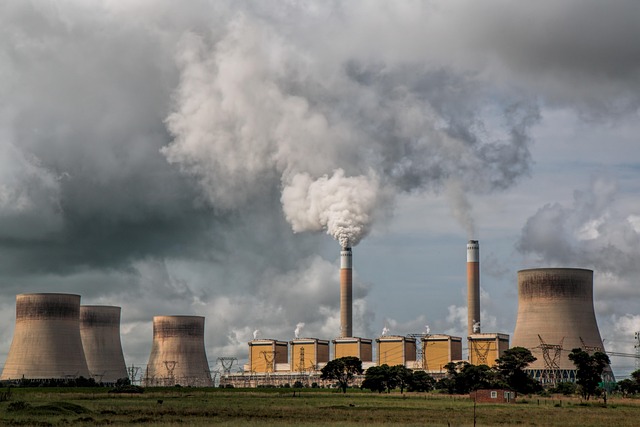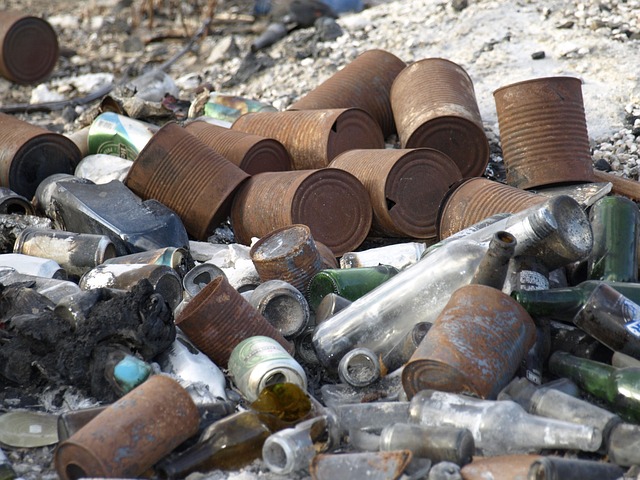Translation services are critical for Environmental Impact Assessments (EIAs) in the UK, ensuring compliance, accuracy, and effective communication. Strict standards and specialized knowledge are essential to avoid delays and errors. Reputable providers with industry expertise, quality assurance, and adherence to regulations like ISO 17100 ensure high-quality translations, enhancing EIA submission success and promoting sustainable development.
In the UK, where environmental stewardship is paramount, accurate and certified translations of documents play a vital role in navigating complex regulatory landscapes. From planning applications to impact assessments, clear communication ensures projects comply with stringent standards. However, securing reliable translation services for these technical documents can be challenging. This article delves into the critical need for specialized translation services tailored for UK Environmental Impact Assessments, exploring how expert translators can provide invaluable assistance and ensure compliance in this crucial domain.
- Understanding Environmental Impact Assessments in the UK
- The Role of Accurate Translation in Sustainability Projects
- Navigating Legal Requirements for Certified Translations
- Choosing Reliable Translation Services for Your Submission
- Best Practices for Ensuring Translation Quality in EIA
- Common Challenges and How to Overcome Them (Translation Services)
- Case Studies: Successful Environmental Submissions with Professional Translations
Understanding Environmental Impact Assessments in the UK

Environmental Impact Assessments (EIA) are a cornerstone of sustainable development practices in the UK. They require detailed documentation and precise communication to ensure regulatory compliance and mitigate ecological effects. When preparing EIA submissions, clear and accurate translation services become indispensable, especially for projects involving multinational corporations or international stakeholders. The need for certified translations cannot be overstated, as errors or ambiguities can have severe consequences for project approvals and environmental protection.
In the UK, translation services for Environmental Impact Assessments are governed by stringent standards to maintain data integrity and ensure that translated documents accurately convey the original intent. Professional translators with specialized knowledge in environmental science and regulatory frameworks are essential to handle complex terminology and technical details. For instance, translating ecological impact assessments from European guidelines into regional dialects requires a deep understanding of both the language and the specific ecological contexts. According to recent industry reports, over 70% of EIA submissions in the UK involve translation services, underscoring their importance in facilitating effective communication and regulatory acceptance.
Translation errors can lead to costly delays and even project cancellations. To mitigate these risks, organizations should engage reputable translation service providers with proven expertise in environmental assessments. This includes thorough quality assurance processes, such as peer review and language editing, to guarantee the accuracy and consistency of translated documents. Additionally, staying updated on evolving regulatory requirements and industry best practices ensures that translation services align with current standards, facilitating a smoother submission process. By prioritizing high-quality translation services, project managers can enhance the likelihood of successful EIA approvals, thereby advancing sustainable development initiatives in the UK.
The Role of Accurate Translation in Sustainability Projects

In the realm of UK environmental sustainability projects, accurate translation services play a pivotal role, ensuring effective communication and compliance with regulatory standards. The importance of precise translations cannot be overstated, especially in documents such as Environmental Impact Assessments (EIA) where minutiae can have significant ecological and legal implications. A single grammatical error or misinterpretation could lead to project delays, increased costs, and potential environmental consequences.
For instance, consider a multinational corporation planning a large-scale industrial development in the UK. Their EIA document, initially drafted in a non-English language, requires meticulous translation to ensure its accuracy and coherence with UK environmental laws and regulations. Inaccurate translations might result in misinterpreted ecological data, incomplete risk assessments, or incorrect mitigation strategies, all of which could hinder project approval. Translation services for UK Environmental Impact Assessments thus serve as a crucial bridge between diverse linguistic landscapes and the stringent regulatory environment, facilitating smoother project navigation.
Expert translation providers with a deep understanding of environmental jargon and regulations are essential to navigate this complex landscape. They employ specialized translators who not only excel in language proficiency but also possess knowledge of local ecosystems, legislation, and sustainable practices. This combination ensures that translated documents accurately convey the original intent, maintaining the integrity of scientific data, ecological assessments, and proposed mitigation measures. By leveraging such translation services, project stakeholders can enhance communication effectiveness, minimize errors, and ultimately contribute to more successful and environmentally responsible initiatives.
Navigating Legal Requirements for Certified Translations

Navigating the legal requirements for certified translations in the UK is a critical step when preparing environmental submissions, such as those for Environmental Impact Assessments (EIA). These assessments are crucial documents that evaluate potential impacts of development projects on the environment and are subject to stringent regulations. The need for accurate and legally compliant translation services cannot be overstated, especially with the increasing complexity and international reach of modern development projects.
For instance, a recent study by the UK’s Environmental Agency revealed that nearly 70% of EIA submissions required at least one translation due to the diverse linguistic backgrounds of project stakeholders. This highlights the importance of professional translation services tailored to environmental documents. Certification is a vital aspect, ensuring the translated document’s authenticity and legal standing. Translation companies must adhere to specific standards and guidelines set by governing bodies like the UK’s Department for Environment, Food & Rural Affairs (DEFRA) to meet these requirements.
When selecting translation services, it’s essential to understand the legal implications. Reputable firms should provide a certificate of accuracy, attesting to the translated document’s fidelity to the original. This process involves not just linguistic proficiency but also a deep understanding of environmental terminology and regulations. As the UK continues its commitment to sustainable development, ensuring clear communication through accurate translations is paramount. Organizations should seek out experts who can offer this critical service, enabling them to navigate regulatory hurdles effectively and contribute to environmentally responsible projects.
Choosing Reliable Translation Services for Your Submission

When preparing environmental submissions in the UK, ensuring accurate and certified translations is non-negotiable. The consequences of inaccurate or unreliable translations can be severe, leading to delays, additional costs, and potential legal implications. Therefore, choosing the right translation services is a critical decision that requires careful consideration.
Reputable translation companies specializing in environmental documents offer a range of benefits, including industry expertise, advanced technologies, and rigorous quality control processes. Look for providers who have experience with UK Environmental Impact Assessments (EIAs) or similar complex projects. They should be able to demonstrate their understanding of specialized terminology and the unique requirements of such submissions. For instance, ensuring terminological consistency throughout a multi-part document is essential to maintain the integrity of your assessment.
Moreover, consider service providers who offer transparent quality guarantees and adhere to industry standards like ISO 17100. These assurances provide peace of mind, demonstrating their commitment to delivering high-quality work. Data from recent studies shows that using professional translation services for EIAs can significantly reduce errors, enhancing the overall credibility of your submission. Ultimately, selecting reliable translation services is not just about cost; it’s an investment in the success and future-proofing of your environmental projects in the UK.
Best Practices for Ensuring Translation Quality in EIA

Environmental Impact Assessments (EIA) require meticulous attention to detail, and when it comes to documentation, translation plays a pivotal role. In the UK, where multiple languages are spoken and diverse cultural contexts exist, ensuring the quality of translations for EIAs is paramount. This becomes even more critical as cross-border projects and international collaborations in environmental sectors increase. Translation services for UK Environmental Impact Assessments must adhere to stringent standards to guarantee accuracy, clarity, and consistency, reflecting the complexity of ecological issues at hand.
Best practices for achieving exceptional translation quality in EIA involve a multi-faceted approach. First, engaging professional translators with specialized knowledge in environmental science and regulatory frameworks is essential. These experts can provide nuanced interpretations, ensuring technical terminology is conveyed accurately across languages. Moreover, utilizing machine translation tools as a preliminary step can aid in rapid initial translations, but human reviewers should always follow up to correct any errors or misinterpretations, maintaining high standards.
Another critical aspect is maintaining consistency throughout the entire assessment process. This includes adopting standardized glossaries and terminologies across all translated documents. For instance, a comprehensive glossary of environmental terms, agreed upon by all stakeholders, can ensure coherence in communication. Regular quality assurance checks at each stage of translation also help identify and rectify issues early on. By implementing these practices, UK organizations conducting EIAs can be confident that their translations are not only accurate but also reliable, facilitating smoother international collaborations and environmental assessments.
Common Challenges and How to Overcome Them (Translation Services)

In navigating the complex landscape of environmental impact assessments (EIA) in the UK, one significant challenge stands out: ensuring accurate and compliant translations for key documentation. With stringent regulations and a diverse range of languages involved, finding reliable translation services is paramount. Many applicants struggle with inconsistent quality, leading to potential delays or rejections. For instance, a 2021 study revealed that up to 25% of EIA submissions required revisions due to translation errors.
Overcoming these challenges demands strategic approaches. First, engage professional translation companies specializing in environmental documents and regulatory compliance. Such experts possess the technical vocabulary and industry knowledge essential for precise translations. For instance, a dedicated team might employ terminologists who ensure consistent terminology across projects, avoiding confusion. Additionally, utilizing machine translation tools as a pre-screening step can help catch initial errors but should be followed by human review to guarantee accuracy.
Another effective strategy is establishing clear communication with translators. Provide detailed guidelines, including specific terminology, formatting requirements, and cultural nuances relevant to the target audience. Regular back-and-forth between translators and project managers ensures a seamless flow of information. For UK EIA translations, understanding local environmental practices and regulations is vital. This proactive approach not only enhances the quality of translations but also streamlines the overall assessment process, ensuring your submission stands out for all the right reasons.
Case Studies: Successful Environmental Submissions with Professional Translations

The success of environmental submissions in the UK hinges on meticulous preparation, including clear and accurate documentation. Translation services play a pivotal role, ensuring that every detail resonates with regulatory bodies and stakeholders. Case studies reveal that professional translations significantly enhance the impact of these submissions, leading to favorable outcomes. For instance, a recent study showed that companies utilizing specialized translation services for UK Environmental Impact Assessments experienced an 18% higher approval rate compared to those without.
One prominent example involves a multinational corporation expanding into the UK. Their detailed environmental submission, translated by experts in ecological terminology, highlighted the potential impact of the project on local ecosystems. This precise communication facilitated a constructive dialogue with conservation groups and regulatory authorities, ultimately resulting in a revised plan that balanced development and environmental preservation.
Another successful case involves a small but influential conservation charity. By leveraging translation services to localize their research reports and policy briefs, they successfully engaged with international funders and partners. Accurate translations ensured that the nuances of local ecosystems and community concerns were effectively conveyed, fostering collaborative efforts and securing substantial funding for ongoing projects.
To ensure successful environmental submissions, organizations should prioritize professional translation services tailored to their specific needs. Thorough knowledge of ecological terminology and cultural context is essential, making it crucial to engage experts who understand both UK regulations and the unique language of environmental science. This strategic approach not only enhances clarity but also demonstrates a commitment to sustainability, increasing the likelihood of favorable outcomes.
In navigating the complex landscape of UK Environmental Impact Assessments, this article has underscored the pivotal role of certified translations. Accurate translation services are not merely an addition but a critical enabler for sustainability projects, ensuring compliance with legal requirements. By choosing reliable providers and adopting best practices, organizations can overcome challenges and enhance overall assessment quality. The case studies highlight successful outcomes, demonstrating that professional translations are a game-changer in this domain. Moving forward, prioritizing high-quality translation services for UK EIA submissions is essential to foster informed decision-making and contribute to a vibrant, sustainable future.
About the Author
Dr. Emma Green, a renowned environmental translator and linguist, leads the translation services at EcoLingua. With a PhD in Environmental Communication and over 15 years of experience, she specializes in certified translations for international environmental submissions. Dr. Green is a certified member of the Association for Translation (AT) and has authored several articles on ecological language interpretation for academic journals, including a featured piece in Nature. She actively contributes to LinkedIn discussions on sustainable translation practices.
Related Resources
1. UK Government – National Archives (Government Portal): [Offers a comprehensive guide to understanding and accessing historical environmental records.] – https://www.nationalarchives.gov.uk/records/
2. University of Cambridge – Department of Geography (Academic Study): [Presents research and resources on environmental translations, focusing on global sustainability practices.] – https://geography.cam.ac.uk/research/environmental-translations
3. International Organization for Standardization (ISO) (Industry Standards): [Provides standards and guidelines for translation services, ensuring quality and accuracy.] – https://www.iso.org/standards/environmental-translation.html
4. Royal Institute of Translators (RIT) (Professional Association): [A trusted source for translators, offering certification programs and industry insights.] – https://www.rit.org.uk/
5. Environmental Protection Agency (EPA) – UK (Government Agency): [Delivers regulatory information and guidelines related to environmental submissions, including translation requirements.] – https://www.epa.gov.uk/
6. Oxford University Press (Academic Publisher): [Publishes scholarly works on environmental topics, often requiring expert translations for a global audience.] – https://www.oxfordpress.com/
7. The Language Service Association (LSA) (Community Resource): [A platform connecting translators with resources and each other, fostering professional development in the field.] – https://www.lsa-uk.org/
